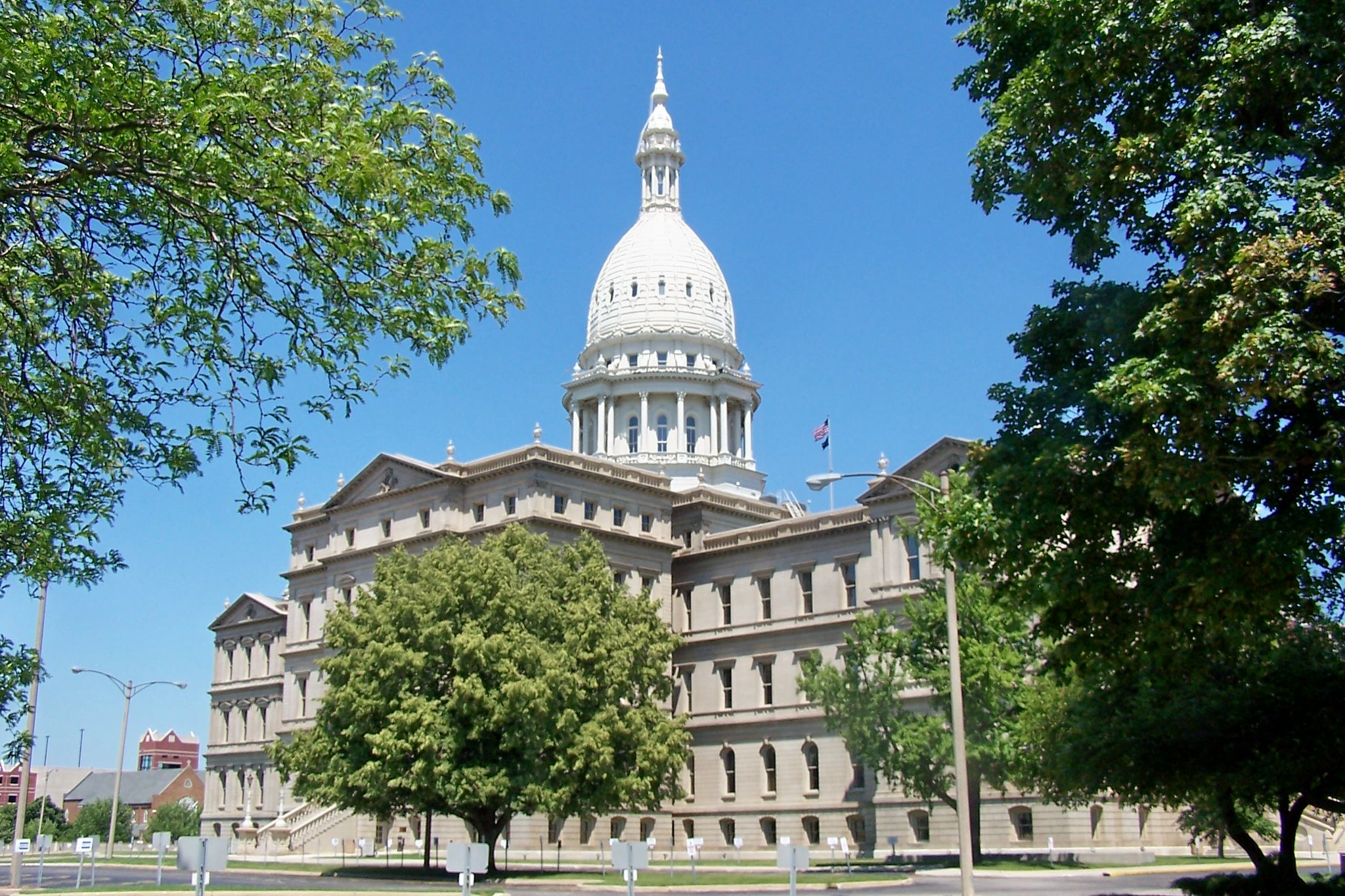The following commentary was written by Laura Sherman. Sherman is president of the Michigan Energy Innovation Business Council, a trade organization of more than 140 advanced energy companies focused on improving the policy landscape for the advanced energy industry in Michigan. See our commentary guidelines for more information.
Michigan can grow its economy and add more well-paying jobs by realizing the clean energy goals set by Gov. Gretchen Whitmer with the adoption of state-level policies, according to a new analysis.
The report from 5 Lakes Energy and the Michigan Energy Innovation Business Council (Michigan EIBC), The Michigan Clean Energy Framework: Assessing the Economic and Health Benefits of Policies to Achieve Michigan’s Climate Goals, finds that clean energy and a strong economy go hand-in-hand. Using economic modeling tools developed by RMI, the report concludes that the Michigan Clean Energy Framework, a set of state-level policies to cut emissions, would lead to the creation of about 160,000 more jobs and over 2.5% higher state GDP growth by 2050.
Clean energy is an increasingly important part of Michigan’s economy. Gov. Whitmer declared that Michigan would be a part of the transition toward low-carbon energy when she set the goals and released the MI Healthy Climate Plan.
But still, more must be done to achieve those goals. Various pieces of legislation have been introduced in Lansing that would support the clean energy industry and cut emissions across the state’s economy. The policies modeled in the report include:
- Expand wind, solar, and storage through a new clean energy standard, and specifically expand rooftop solar by lifting caps on distributed energy and promoting community solar programs
- Require more energy efficiency by strengthening energy waste reduction standards for utilities
- Build enough electric vehicle charging stations to accommodate future growth in electric vehicles
- Set targets for the installation of heat pumps to help electrify home heating
- Accelerate the electrification of industrial processes such as metal fabrication
Instituting these policies will stimulate economic development and job growth that would otherwise not occur. The time is especially ripe for this type of economic development because of federal funding for emissions reductions offered by the Inflation Reduction Act (IRA) and Infrastructure, Investment, and Jobs Act (IIJA).
These federal laws offer billions of dollars in grants, rebates and tax credits for state and local governments, non-profit entities and businesses for clean energy projects. State level policies like those modeled would provide more avenues for clean energy investment, allowing the state to better take advantage of these federal opportunities, leading to hundreds of millions of dollars in federal investment that would flow into Michigan. Much of that investment would be lost if these supportive state clean energy policies are not implemented.
What’s more, these economic benefits can be achieved while keeping household energy costs stable. The analysis found that because of clean energy policies that promote electric vehicle use and the electrification of home appliances and heating and cooling systems, the typical household would spend more on electricity but spend significantly less on gasoline and other fuels, leading to a decrease in total energy costs.
To illustrate how the private sector is already responding to the influx of federal funding and the prospect of additional state policies, as part of the report, Michigan EIBC surveyed and interviewed companies working in renewable energy, energy storage, electric vehicle charging, energy efficiency, construction and manufacturing. A majority of these companies plan to use federal grant opportunities from the IRA and IIJA to expand their business operations and workforce, with three-quarters planning to hire at least five more employees, and nearly half planning to hire 50 or more employees in the coming year.
These results show that clean energy policies are already driving economic growth and job creation, but also demonstrate the potential for even more investment and growth if the right policies are in place.
Michigan needs to establish policies that expand renewable energy and energy storage, allow Michiganders to generate their own electricity and protect their families from power outages, add charging infrastructure to enable more drivers to go electric, and improve the energy efficiency of our homes and businesses. As this report reveals, these policies would be a win-win for the state — reducing carbon emissions while also creating jobs, spurring economic growth and lowering energy costs.


















